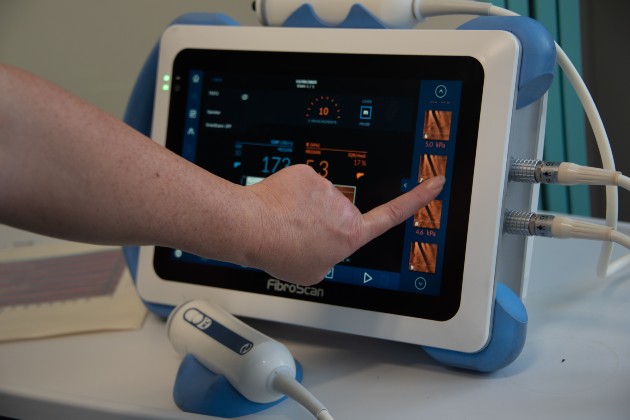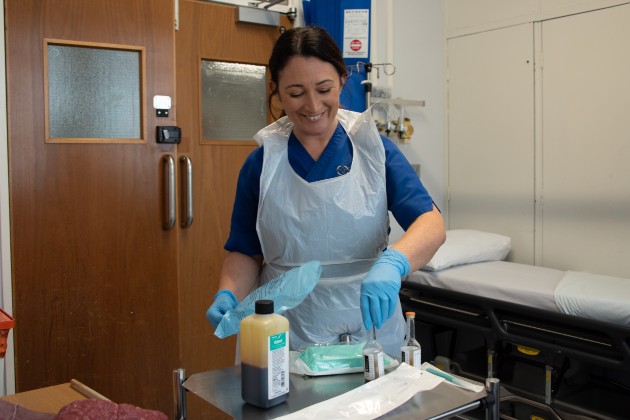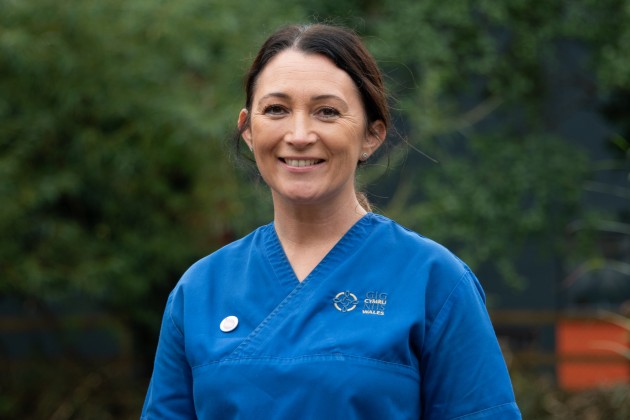Liver disease is one of the major causes of death in the UK. Worryingly, it’s on the increase.
So why don’t we see more about it in the news? Why aren’t there people protesting outside parliaments, demanding better treatments and care?
Probably because those with the disease often feel stigmatised and don’t want to draw attention to themselves. And many of those who are at high risk of developing the disease don’t know that yet.
Tara Rees, a lead hepatology clinical nurse specialist, has for the last 20 years pushed for change so her patients can get the care they deserve.
“Improvements to health promotion messages, better education for health care staff and more resources are essential,” she says. “The signs and symptoms of liver disease are vague. So getting a diagnosis at an early stage can be challenging.”
Prevention is better than cure
Raising public awareness of the causes is vital to reduce the risks of people developing chronic liver disease and the complications associated with it.
Getting a diagnosis at an early stage can be challenging
“If detected early enough, the liver can repair itself, however if left undiagnosed and untreated the liver can become cirrhotic (scarred), which is not reversable,” explains Tara.
Although jaundice is a sign of liver injury many patients will not experience this and instead receive a coincidental diagnosis.
Patients may be seeing their GP for a general health check, attending a routine diabetic clinic, or even visiting A&E when they find their liver function tests or ultrasound scans are abnormal . Although you can have cirrhosis (scarring of the liver) with normal liver function tests.
Causes
The 3 main causes of liver disease are:
- obesity
- alcohol
- viral hepatitis.
Other causes include:
- auto-immune disease
- genetic and hereditary disorders
- cancer.
Unfairly stigmatised
Tara explains that patients with liver disease are often younger and from a lower socio-economic background, so they may lack the confidence needed to approach health care professionals with any concerns.
Many also have addictions to drugs and alcohol which Tara says can lead to them being unfairly stigmatised.
“This delay in accessing diagnosis and treatment can be detrimental to their health unnecessarily so stigma needs to be challenged on a public health level and within the liver disease patient group.”
Obesity is now the leading cause of liver disease in Wales
Tara’s also worried about the growing rates of obesity. “We know obesity increases the rates of heart disease, stroke and diabetes but it’s now the leading cause of liver disease in Wales.
“With high rates of childhood obesity, this will have a massive impact on the future NHS. Increasing numbers of obesity means more will develop liver disease and this cannot be ignored.”
Addressing longer term needs
Due to the scarcity of symptoms and the frequency of late diagnosis, liver cirrhosis and the complications associated with it, including liver cancer, are a critical concern.

Tara explains: “If a patient develops decompensated cirrhosis, their liver can’t function properly. This carries a 50% mortality rate over a 2-year period.”
Over the last year Tara has worked collaboratively with a palliative care consultant to set up a supportive care service for patients with end stage liver disease (last 2 years of life).
“This team epitomises co-speciality working not only among hepatology and palliative care colleagues but with other allied health professionals,” Tara says.
Working with a hepatologist, Tara has appointed 2 liver cancer nurses to provide this service for south Wales providing a key worker role. They co-ordinate patient care through the single cancer pathway, undertaking key health needs assessments and signposting and referring patients to the relevant services including palliative care.
Decades of taking the initiative
This isn’t Tara’s first ground-breaking initiative. Twenty years ago, she addressed the need for a blood borne virus clinic in the local community drug and alcohol service, screening and treating Hepatitis C.
These patients often didn’t attend clinic as they felt judged yet were at a substantial risk of developing liver disease. This community clinic model of care is now standard practice throughout Wales.
Tara’s also set up a day case paracentesis service – a procedure to drain fluid from the abdomen, which can build up as a result of liver disease.
Previously carried out by medical staff and requiring hospital admission for up to 5 days, this is now undertaken by Tara on a day case basis. In addition, she also trains other medical staff on how to complete the procedure.
Patients are so grateful they don’t have to spend hours or days waiting for a hospital bed
“Providing this service provides fast and effective care for the patient, allowing for an overall hepatology assessment of the trajectory of their liver disease, ensuring all relevant investigations have been requested and acted upon while saving on hospital bed stays.
“Patients are so grateful they don’t have to spend hours or days waiting for a hospital bed for the procedure to be carried out. Symptomatically they feel so much better after the removal of the fluid, which for some can be up to 20 litres.”

Never a dull moment
Tara says one of the best parts of her job is working with her patients and building a mutual rapport.
“This patient group is amazing,” she says. “There's never a dull moment. Many a day I think this would only happen in the world of hepatology”.
“There’s still a lot of work to do, but it’s such rewarding work.”
Further information
- Find out more about Tara, RCN Wales Nurse of the Year 2023.
- Read more about liver disease on the British Liver Trust website.








